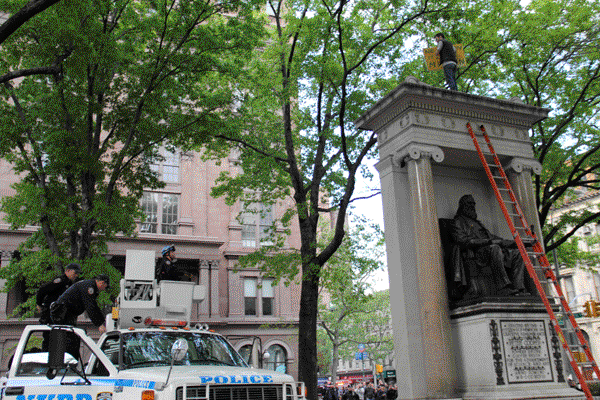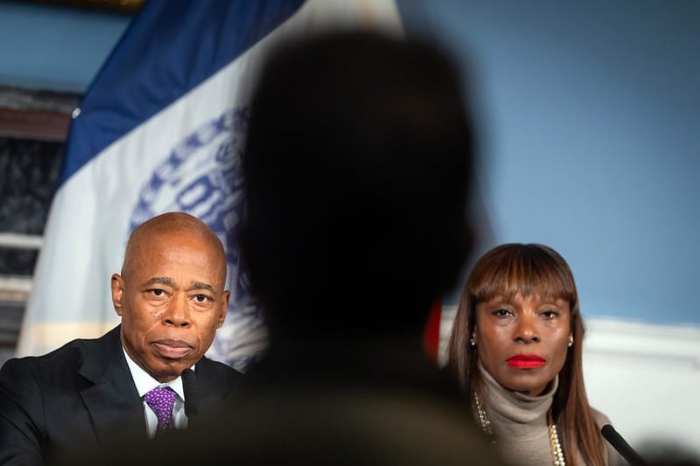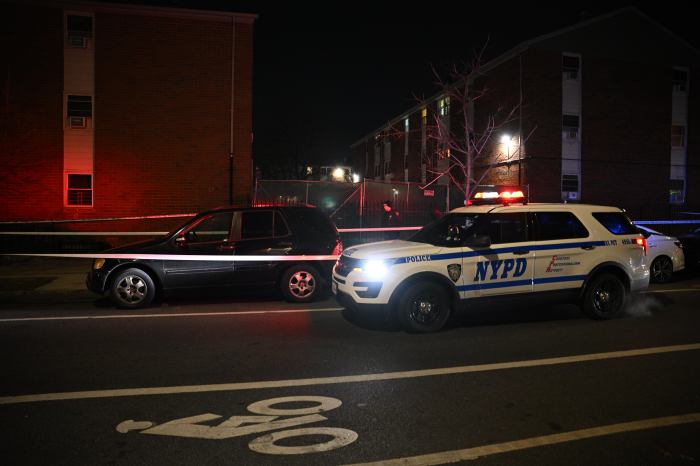BY SERGEI KLEBNIKOV | A year after The Cooper Union decided to charge tuition, a group of professors, students and alumni have filed a lawsuit to block the move.
Two weeks ago, the Committee to Save Cooper Union, a coalition formed this past December, sued in Manhattan Supreme Court to stop the elite school from implementing tuition next fall.
The lawsuit charges Cooper Union’s board of trustees with various infractions, mainly fiscal mismanagement, and seeks a permanent injunction against charging tuition.
In its court papers, the Committee to Save Cooper Union states that the board repeatedly violated the school’s deed of trust and charter over the past few years.
The lawsuit describes how the school was founded on three pillars to support its governance: free education, transparency and fiscal conservatism. The plaintiffs charge the board of trustees has violated these fundamental principles, in clear violation of Cooper Union’s founding documents.
The plaintiffs accuse the board of trustees of violating the vision of school founder Peter Cooper. In short, they argue, charging tuition would go against 155 years of tradition, as well as Cooper’s famed credo that education should be “as free as water and air” and “free to all.”
The committee also accuses the trustees of being spendthrift and squandering Cooper Union’s endowment. The lawsuit states that, in recent years, trustees invested in risky hedge funds, organized “unsound” real estate transactions, accumulated huge debt, and forged ahead with plans to build a new academic building, despite an obvious lack of funds.
After an unsuccessful fundraising campaign, the suit argues, the trustees moved ahead with the school’s new Engineering Building project, despite the fact that there was no primary donor who had contributed funding in exchange for his or her name on the building.
Later that year, after a court petition to take on more debt, the school mortgaged Cooper Union’s most valuable asset, the Chrysler Building. The suit states that the trustees used many of the loan proceeds to increase the school’s hedge-fund investments.
A key aspect of the committee’s case is its accusation that it was irresponsible to appoint Jamshed Bharucha as the school’s new president. The trustees’ president search was “plagued with irregularities,” the committee states. Bharucha was hired the same weekend as a chance encounter with a trustee, before all the trustees had even met him, the suit alleges.
According to the suit, Bharucha spent lavishly on his inauguration party, and quickly began championing the idea of charging tuition.
From the moment he took office, the new president “seemed to have a different agenda” according to Adrian Jovanovic, a co-founder of the Committee to Save Cooper Union and a plaintiff in the case.
Justin Harmon, a Cooper Union spokesperson, said, “The decision to charge tuition was tremendously difficult and every member of the Cooper community feels the profound effect it has had. … We are disappointed that the Committee to Save Cooper Union would choose costly litigation over constructive conversation.”
Harmon added that the decision “came after many decades [since the 1960s] of using every means available to preserve Cooper Union’s tradition of free education, including budget cuts, borrowing and selling assets.”
However, after two years of failed negotiations to avoid charging tuition, Jovanovic said that the administration “didn’t participate in discussions in good faith,” adding, “They do not take Peter Cooper’s vision seriously.”
Bharucha and the administration rejected a plan by a working group created to advise the trustees and explore ways to save free tuition, and also nixed trustee Jeff Gural’s plan to donate a large sum of money in order to delay charging tuition for another year.
Both those options were “viable economically,” according to attorney Andrew Wilson, of the firm Emery Celli Brinckerhoff & Abady, who is representing the committee. “The board turned their backs on them,” Wilson said.
Raising money to retain an attorney and file suit was not something taken lightly.
“Legal action was our last resort,” Jovanovic said.
As well as a permanent injunction against tuition, the committee hopes to create “an oversight body” for the trustees, Wilson explained.
Even after tuition starts being charged, he noted, “Cooper Union will remain among the most affordable elite institutions in the world.”
Wilson said the committee’s goal is to resolve the issue “in time for the fall.”
They won’t be lacking for support, assured Jovanovic, the committee’s co-chairperson.
“Students, faculty and alumni will all rally to Peter Cooper’s vision,” he said.




































